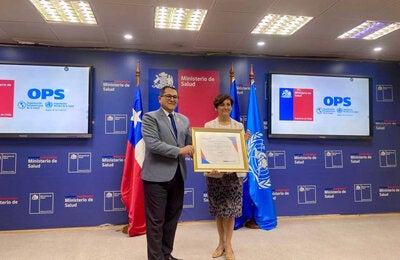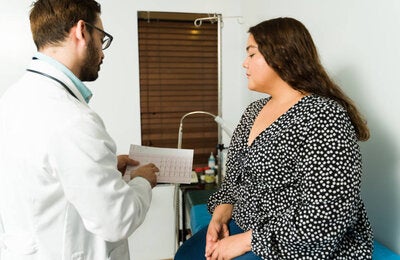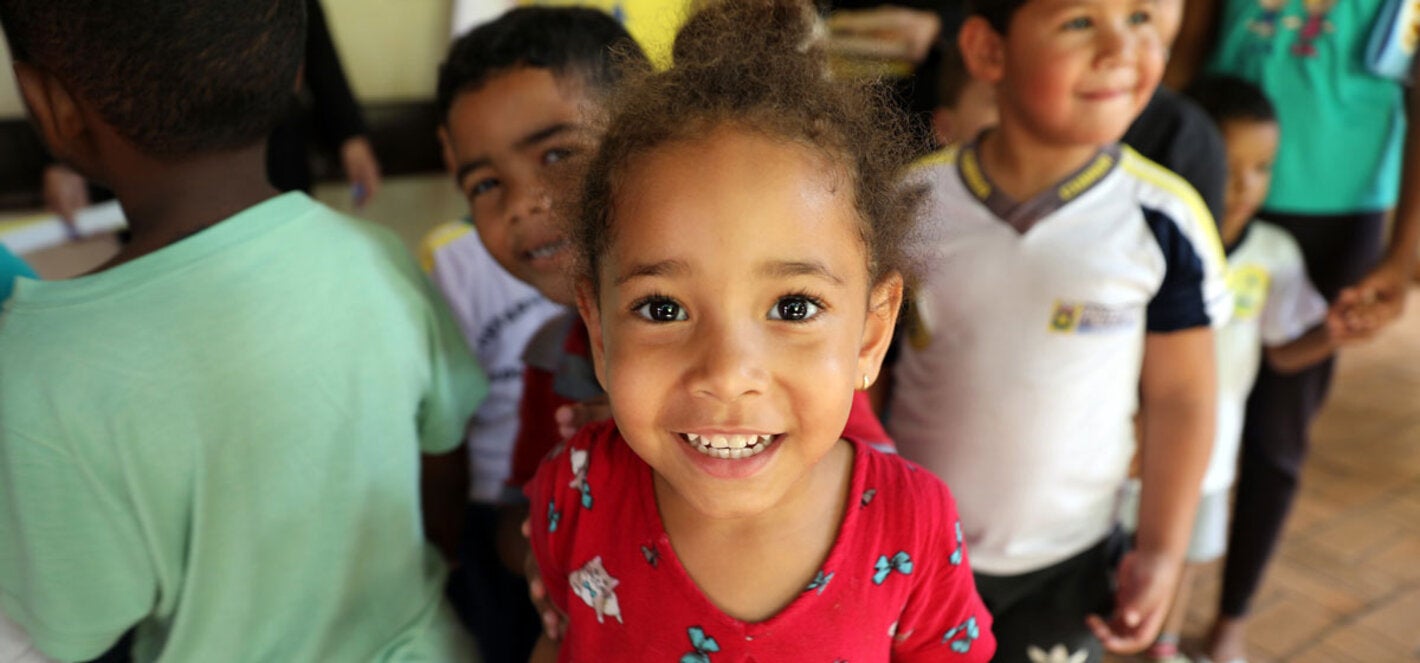
Brasília, 22 April 2019 (PAHO/WHO) – The Pan American Health Organization (PAHO) has launched in Brazil the 17th edition of Vaccination Week in the Americas, under the theme “Protect your community. Do your part”. The initiative is celebrated between April 20 and 27 with the participation of 45 countries and territories in the Region. This is the second time that Brazil has launched the initiative. In 2011, the regional inauguration took place in Manaus, on the border between Peru and Bolivia.
The Director of PAHO, Dr. Carissa F. Etienne, opened the week by highlighting that, within the framework of the initiative, more than 740 million people have been vaccinated against a wide range of communicable diseases.
“Seventeen years has not only enabled us to reach and protect more people through immunization, and to therefore save lives, but it has also allowed us to improve and benefit from the many lessons learned over time”
Dr. Carissa F. Etienne
Historically, the Region of the Americas has led the way towards the elimination of various vaccine-preventable diseases. In 1971, it became the first region in the world to eliminate smallpox. In 1994, it achieved certification for the elimination of poliomyelitis. In 2015, it ended rubella and congenital rubella syndrome and in 2016, it eliminated measles. However, according to Etienne, the resurgence in outbreaks of measles and diphtheria, as well the occurrence of yellow fever, are challenges that must be faced in the Region. “Measles remains a public health problem in all other Regions of the World Health Organization (WHO) and imported cases have been a significant threat to the countries of the Americas, where more than 17,000 cases have been registered since 2017,” said the PAHO Director.
Dr. Etienne congratulated Brazil for having included the increase in vaccination coverage as one of its 35 strategic health priorities. “The Brazilian immunization program is one of the strongest pillars of the Unified Health System – the SUS, which not only contributed to the elimination of smallpox and polio in the Americas but was also responsible for a significant reduction in diseases and complications – a praiseworthy achievement,” she said.
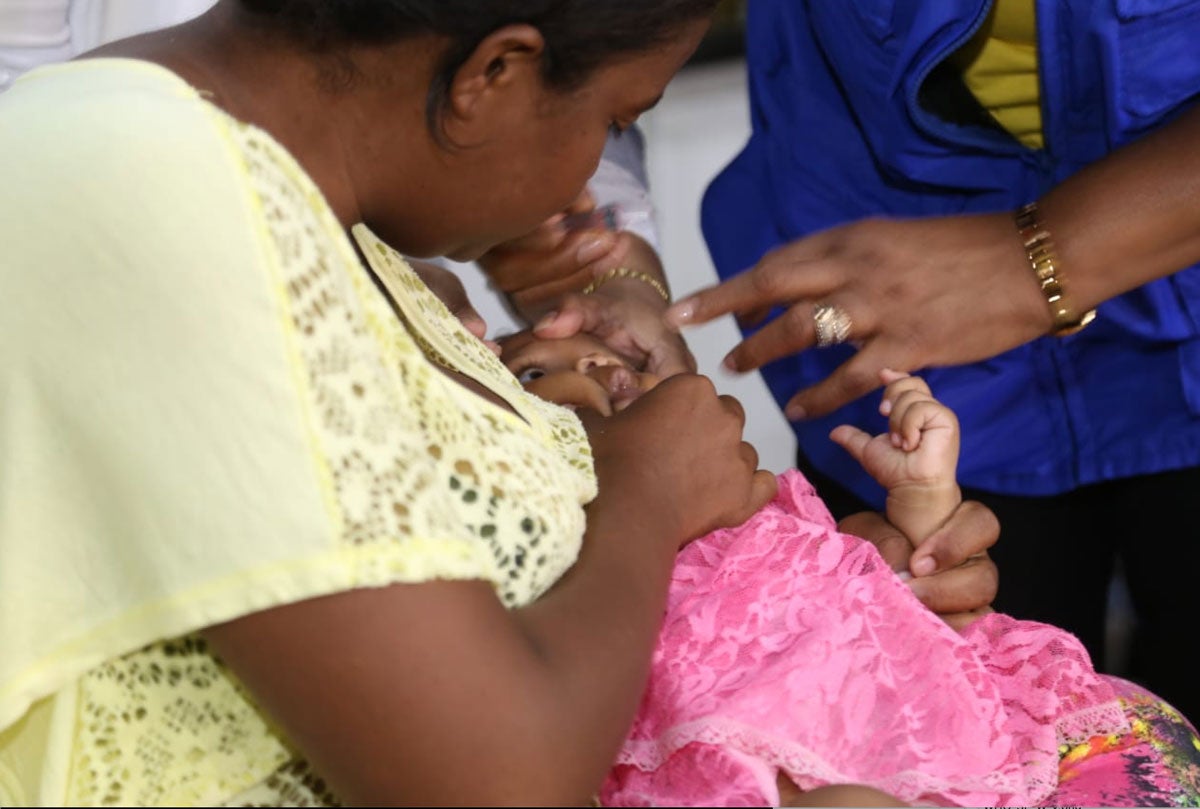
To halt outbreaks of measles in the Region, it is vital that countries achieve increased vaccination coverage so that at least 95% of the target population receive 2 doses of vaccine against the disease, including health professionals and people living in situations of vulnerability. “We can interrupt the transmission of measles by working together, in the field, on the borders, with true Pan-American spirit,” emphasized Dr. Etienne.
“Brazil calls on the international community to come together so that the world unites for vaccination. The challenges are not just for the Brazilian health system, but for humanity as a whole.”
The Minister of Health of Brazil, Dr. Luiz Henrique Mandetta, highlighted efforts made by the country to increase vaccination coverage and called on the countries of the Americas and other regions to cooperate and ensure that all populations are immunized. “Brazil calls on the international community to come together so that the world unites for vaccination. The challenges are not just for the Brazilian health system, but for humanity as a whole.”
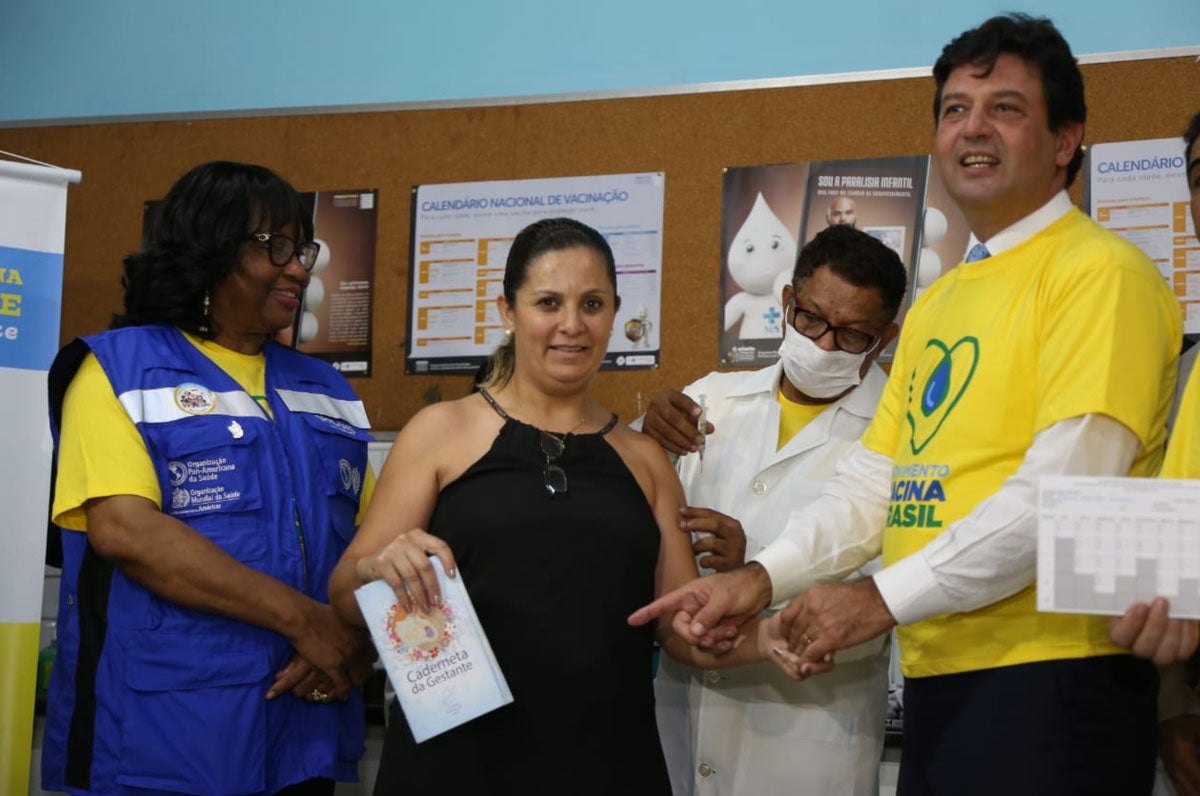
According to Dr. Mandetta, Brazil has worked on a series of actions to ensure that more people are protected from diseases such as measles and polio. The country’s Ministry of Health will implement the use of digital vaccination cards to facilitate the monitoring of the vaccination calendar throughout the life course, as well as other measures.
Also participating in the event were delegates from the Ministries of Health of Colombia, Bolivia, Argentina, Paraguay and the United States, as well as representatives from Rotary International and the Regional Technical Advisory Group on Immunization.
About Vaccination Week
Vaccination Week in the Americas began in 2003 as part of the response to an outbreak of measles in the Region, which occurred in Venezuela and Colombia in 2002. To prevent this type of emergency from happening in the future, the Ministers of Health of Andean countries proposed the idea of creating an internationally coordinated immunization initiative. Since its inception, the initiative has been a key driver of immunization progress in the Region of the Americas, serving as an opportunity to highlight the vital work of national immunization programs.
Following the initial success of Vaccination Week in the Americas, other WHO regions began to create their own regional vaccination week. This global movement culminated in the creation of World Immunization Week (WIW) in 2012. WIW was approved at the 65th World Health Assembly in May 2012 and is carried out during the last week of April each year.
Vaccination Week in numbers:
- At least 20 countries plan to vaccinate more than 2.25 million children and adults against measles (Anguilla, Bahamas, Barbados, Belize, British Virgin Islands, Colombia, Costa Rica, Dominica, El Salvador, Grenada, Guatemala, Haiti, Honduras, Jamaica, Nicaragua, Paraguay, St. Maarten, Suriname, Turks and Caicos Islands and Uruguay).
- Brazil plans to implement a massive campaign against influenza, targeting a total of 50 million people.
- Another 11 countries (Chile, Colombia, Dominican Republic, El Salvador, Grenada, Honduras, Jamaica, Paraguay, Peru, St. Lucia, and Trinidad and Tobago) will also conduct influenza campaigns targeting various groups with the “southern hemisphere” formulation of the seasonal influenza vaccine, in preparation for the increased circulation of the virus in the coming months.
- At least 4 countries (Bolivia, Brazil, Colombia and Ecuador) are including the vaccination against Yellow Fever in areas at risk of the disease.
- Around 18 countries and territories, including Belize, Bermuda, Barbados, Bonaire, Dominican Republic, Guatemala, Honduras, Jamaica, Panama, Paraguay, St. Maarten, Trinidad and Tobago and Uruguay, plan to vaccinate adolescents against HPV and carry out related promotional and educational activities.
- This year, 16 countries seek to reach populations in situations of vulnerability, including pregnant and postpartum women, health workers, older adults, indigenous populations, individuals with chronic disease, and prisoners and prison workers, among other occupational risk groups and vulnerable populations.
- Several countries will focus their efforts on protecting occupational health workers against a range of diseases such as hepatitis B, tetanus and influenza.
- As part of Brazil’s Month of Vaccination of Indigenous Peoples, a combined effort of the National Vaccination Program and the Department of Indigenous Health, the aim is to update vaccination schedules of approximately 695,7822 people in indigenous communities, in addition to administering the annual dose of the influenza vaccine. This effort will require the participation of around 3500 health professionals.
Links

